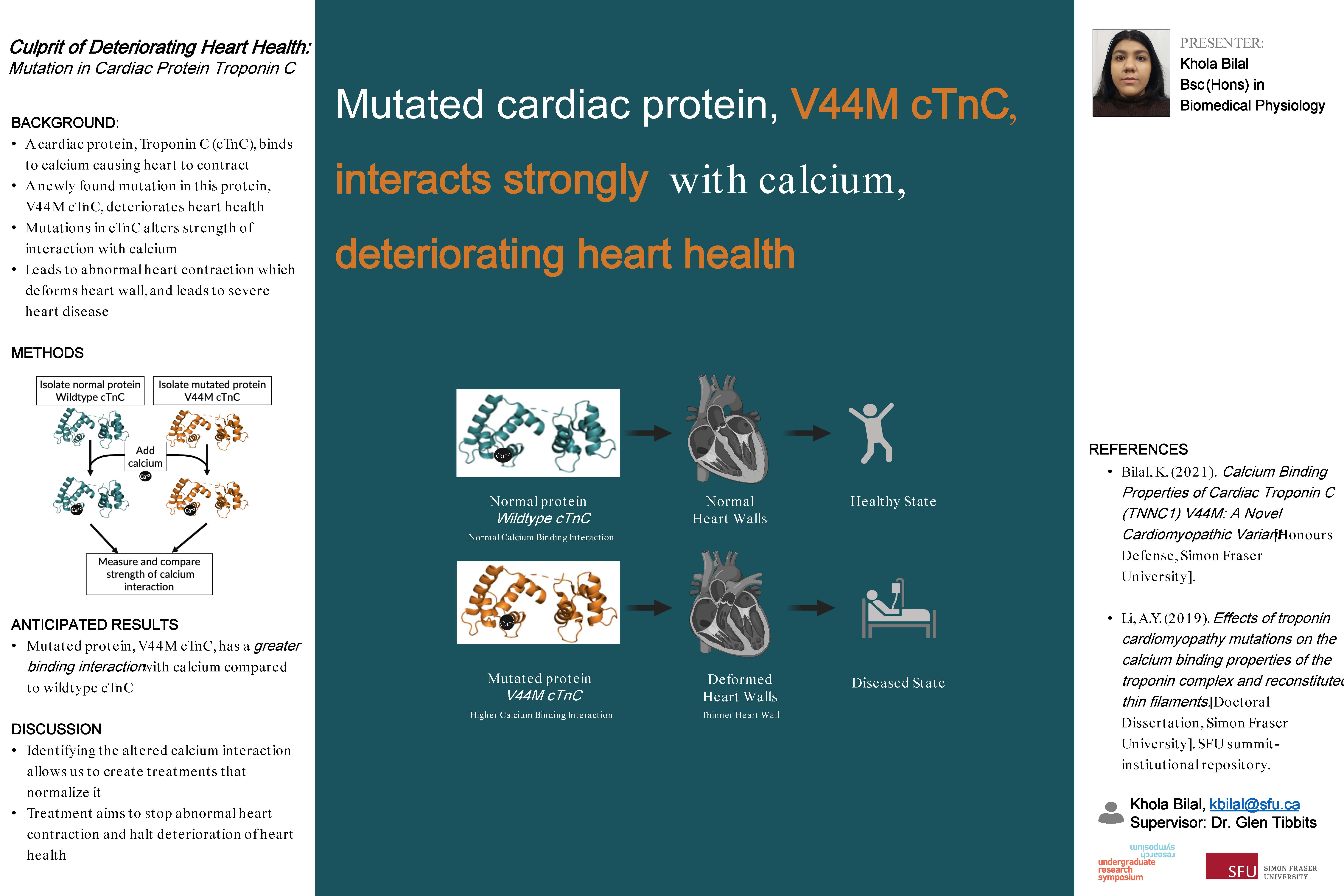Novel Genetic Mutation in a Heart Protein Leads to Debilitating Heart Disease in Young Teen
Main Article Content
Abstract
Heart disease is often associated with an aging population, so it is shocking to learn that seemingly healthy children can rapidly develop heart diseases. Due to the unknown cause of these diseases, most treatments focus on managing the symptoms instead of treating the root cause. Consequently, these children can face extremely low survival rates and often require invasive surgeries such as heart transplants. This presentation focuses on the story of a 15-year-old German boy diagnosed with a heart disease that causes thinning of the heart walls. Genetic testing revealed he had a novel mutation in Troponin C (TnC), a protein integral to normal heart function. The heart’s ability to beat is controlled by the interaction between TnC and calcium ions. Any changes to the strength of this interaction can cause the heart to beat abnormally, leading to changes in the heart’s structure. My presentation takes you through my research journey where I test the altered interaction between the mutated TnC protein and calcium in various biochemical systems that mimic the physiological conditions of the heart.
By investigating how this mutation changes the ability of TnC to interact with calcium, we can better understand the mechanisms leading to this disease. This allows us to potentially create treatments to normalize this abnormal interaction, thereby stopping the progression of the disease and extending the lives of children affected.
Faculty Supervisor:
Dr. Glen Tibbits, Biomedical Physiology and Kinesiology, Simon Fraser University
Article Details

This work is licensed under a Creative Commons Attribution-NonCommercial-NoDerivatives 4.0 International License.

